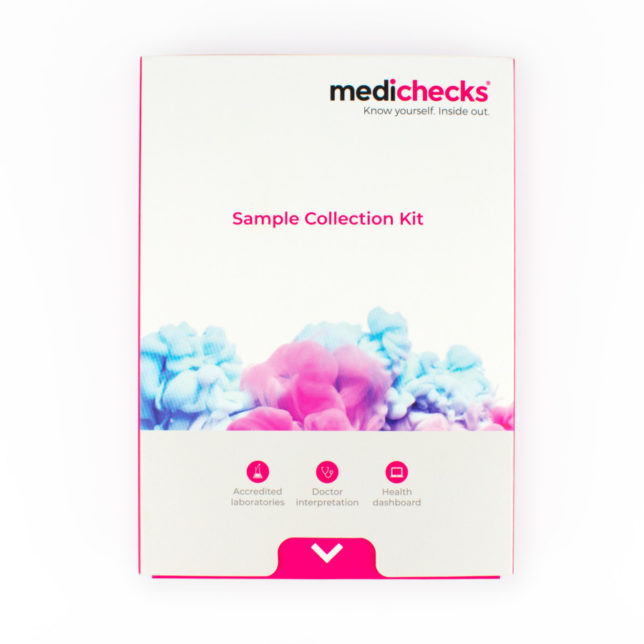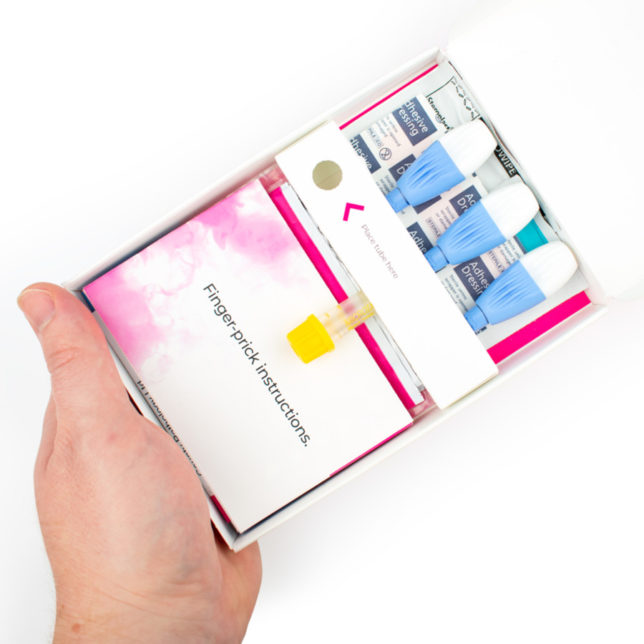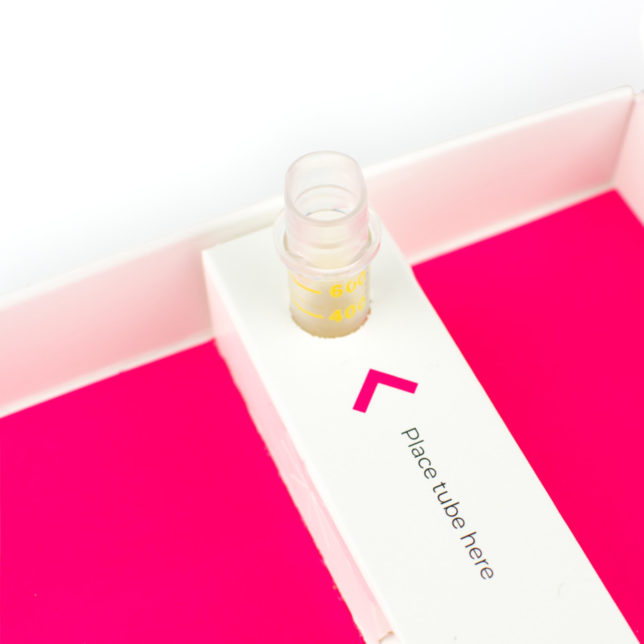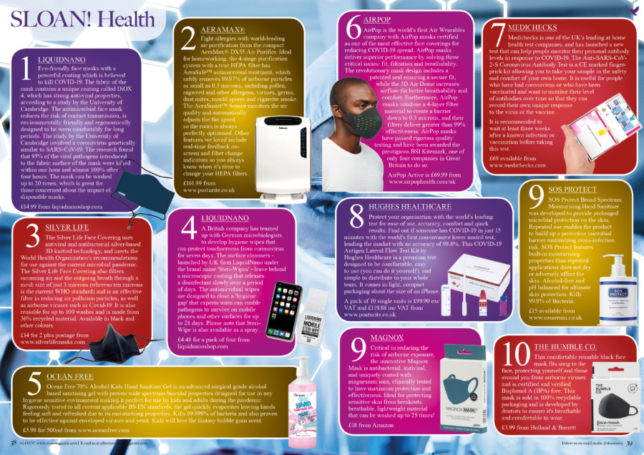Medichecks is one of the UK’s leading at home health test companies and has launched an Anti-SARS-CoV-2-S Coronavirus Antibody Test that can help people monitor their personal antibody levels and track unique responses to the COVID-19 virus or the vaccine. Medichecks’ CE-marked finger-prick test can be taken at home and detects antibodies to the spike protein of SARS-CoV-2, the virus which causes COVID-19. These are the antibodies which the body makes to fight the virus. The test measures the quantity of antibodies present, and is reported as a numeric result.
Posted via Royal Mail, results are available within two to three days, and can help people to ‘know their number’ by identifying a figure on a scale of 0.4 to 2500 U/mL (units per millilitre). A score of below 0.8 means no antibodies were detected; anything above this shows the presence of antibodies to the virus. The duration and effect of these antibodies in giving immunity to the virus is still being established.
It means individuals can monitor their personal antibody levels, paving the way for better intelligence on immune response among different people. As more research is completed this may prove useful when it comes to everyday activities and occasions – such as booking overseas travel, spending time with vulnerable friends and family, or returning to work and hospitality settings. The test can be taken at three-to-four-month intervals, to measure variation.

Dr Sam Rodgers is Chief Medical Officer at Medichecks, the UK’s longest-standing online consumer blood testing provider. He explains: “What is being learnt about COVID-19’s impact on the immune system is still a moving target, but this test lets people monitor their antibody levels over time. It is not yet known how long immunity, once it has developed, will fade, what level of antibodies provides immunity to coronavirus or at what level re-vaccination will be needed.
“It is also a focus of ongoing study whether antibodies may drop more quickly in certain groups of people, or if a COVID-19 infection generates more or less antibodies than the vaccine.
“We won’t completely rid the UK of COVID-19 anytime soon, but the more we can track antibody fluctuations in the UK population, the better picture we can build around how this virus can be managed long-term.”
The NHS Blood and Transplant Service (NHSBT) issued a plea for more male COVID survivors to donate plasma to its national treatment trial. Analysis by NHSBT found that 43% of male donors had high enough COVID antibodies for their plasma to be used to help patients hospitalized by the virus, compared to just 29% of women – a difference they described as ‘statistically significant’.
Dr Rodgers adds: “As a guide, NHSBT is targeting volunteers who have antibody levels higher than 62 (U/mL) to donate plasma to treat people who are seriously ill with coronavirus. This doesn’t mean that if you have lower levels than this you won’t be protected, as we don’t know at what level of antibodies protection occurs.
“A number of studies have shown that coronavirus antibodies remain in the blood for at least six to eight months for most people. For some, particularly those who had no symptoms, antibody levels may decline more quickly. With the Medichecks test, it will be possible to get a result below 0.8 (U/ml), even if you have had a coronavirus infection in the past. This could be because you only experienced mild or non-existent symptoms. It could also be because your body responded to the virus using different parts of your immune system.
“There is a higher chance of a negative result (below 0.8 U/ml) if the test is taken too soon after becoming infected with coronavirus or being vaccinated, so we recommend waiting at least three weeks after a known infection or vaccination before testing.”

By taking this test, people can not only get a good understanding of their levels but their anonymised data can be used in the fight against the virus – helping shape a national picture on antibody fluctuations in the UK population.
Despite there being a few covid antibody tests on the market, what makes Medichecks different is that their test measures levels, not just whether antibodies are present or absent. Medichecks is the UK’s longest-standing online consumer blood testing provider. Priced competitively, Medichecks’ CE-marked finger-prick Anti-SARS-CoV-2-S coronavirus antibody test is manufactured by Roche who have undertaken rigorous sensitivity and specificity testing.
Test sensitivity is the ability of a test to correctly detect a positive result when testing samples from people known to have had a coronavirus infection. After 28 days, sensitivity is 100%, based on a study by test manufacturer Roche so we recommend taking the test 3-4 weeks after your vaccine or from when you traced that you had been infected with the COVID virus.
Test specificity is the ability of a test to correctly produce a negative result when testing samples from people known not to have had a coronavirus infection. Roche used 5,991 negative samples, with the test produced only one false-positive result – giving the test a specificity of 99.98%.

Medichecks posts a sample collection kit to customers together with full instructions on how to collect a blood sample in a small vial at home. When taking a finger-prick blood test, there are some things you should make sure you do to make sure you have a successful test. These are:
1. Hydrate Well
Make sure you are well hydrated before attempting to take your test, as this can affect your blood flow. We recommend drinking a large glass of water in the hour before you are planning to do the test.
2. Get Your Blood Flowing
It’s a good idea to increase your blood flow before a test. Activities such as taking a warm shower, moving gently with stretches or yoga, doing a quick burst of 10-star jumps or simply walking up and down the stairs a few times will help get the blood pumping making collecting the blood more successful.
3. Choose the Best Finger
We found that when collecting blood, it was best to prick the side of your ring finger on your non-dominant hand (which for most of us would be the left hand). It also is recommended to wash your hands in warm water and use the alcohol wipe included in your kit to clean your chosen finger immediately before collecting blood.
4. Gravity is Your Friend
When actually collecting blood, we found that best results were achieved by massaging the finger downwards towards the finger-prick site and letting gravity be your friend by standing up to help the blood flow smoothly into the vial. You may find you need to try a different finger to fill the vial with the required amount of blood. We found that in one case, three fingers had to be used to fill the vial however in another case, only one had to be used so this does vary.
Once the sample has been taken it is then posted to a UKAS accredited laboratory for analysis. The result, accompanied by a doctor’s interpretation, is uploaded to the customer’s online dashboard. A result which is less than 0.8 U/ml is negative for coronavirus antibodies. A result which is 0.8 U/ml or more is positive, and means that antibodies to coronavirus have been detected in your blood.
Our review panel results were between 1,384 U/mL and 194 U/mL. All participants had received the double jab of the Astra Zeneca vaccine at least 3 weeks before testing. In terms of qualitative results, the positive result for Anti-SARS-CoV-2-S antibodies is anything over 0.8 U/mL. So all of the panel tested positive using the Medichecks at-home testing kits.
At the moment we do not know what constitutes a high, low or average level of antibodies in the population. However, as a guide, NHS Blood and Transplant targeted people who had antibody levels higher than 62 U/ml to donate plasma to help in the treatment of people who are ill with coronavirus. This doesn’t mean that if you have lower levels than this you won’t be protected against coronavirus. However, we don’t know at what level of antibodies protection occurs. This test enables you to track your levels of antibodies over time, to see how quickly they decline after a positive coronavirus test or receiving the vaccine. Please note that some people do not develop antibodies even after a positive test for coronavirus. This may be because another part of their immune system e.g. their T-cells, successfully fought the virus. We also know that not everyone who has the vaccine will develop antibodies.
Manufactured by Roche, the Anti-SARS-CoV-2-S coronavirus antibody test is priced at £69 and is available to buy from medichecks.com/products/coronavirus-antibody-blood-test
Medichecks Anti-SARS-CoV-2-S coronavirus antibody test was also featured on page 39 of the 26th Edition of SLOAN!


